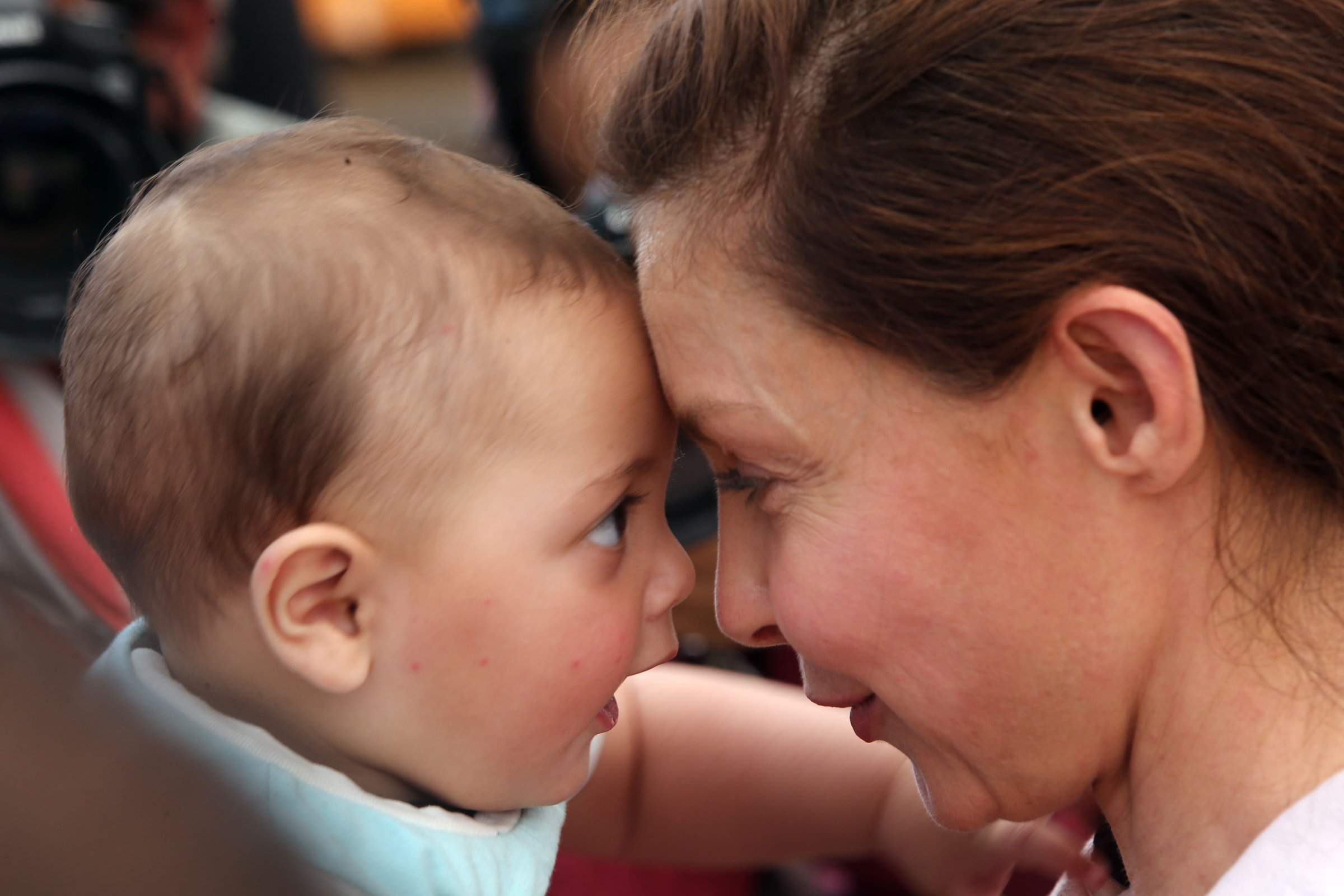
As I recently saw in Jordan, Turkey and Ukraine, refugees need a chaos-free, safe place to live. They need to eat and drink. Their children need schooling. They exercise and relax. They paint, cook, act, sing, dance, do yoga and shop.
They also become intimate. Girls and women become pregnant. Babies are born. Families grow. It’s amazing. While bombs drop, unaccompanied minors as young as 4 flee on foot, and generations of families seek whatever approximates order in that most abnormal of settings. But even in refugee camps, and while dispersed in host communities, there is desire. There is the joy of procreation.
Yet in fragile and humanitarian settings, this most deeply natural and automatic of human behaviors and needs is largely unaddressed. If ever there was a time girls and women need to know how to regulate their fertility, and be empowered to make thoughtful choices about their family size, it is when they’re on the run from armed conflict.
Equally, while girls and women always need to be able to prevent and address sex’s unrelated facsimile, gender-based violence, they especially need to, and cannot, as refugees. Gender-based violence, which is really about power and control, escalates in fragile settings. Human rights abuses abound.
I spent two phenomenal, deeply moving weeks with Syrian refugees in Jordan, and then I traveled to Turkey and eastern Ukraine, in my capacity as Goodwill Ambassador for UNFPA, the United Nations Population Fund.
One glaringly bright afternoon in Azraq refugee camp in Jordan, a frantic, wailing figure in an abaya threw herself in front of our truck. She was an adolescent bride. Her young husband had gone out. Her mother- and sisters-in-law had been beating her. But she knew that the staff in the camp would help her, so she fled her new home. Upon finding her, the local staff in our group took her to the UNFPA-run hospital, where she received medical care, psychosocial assistance and legal advice from trained social workers. Now, one month after she reached out for help, she is still safe and living with her parents.
This was not an isolated incident, and these trends aren’t anecdotal: these are occurrences I witnessed myself, and were documented by organizations addressing them. Working with partners on the ground, UNFPA delivers essential services that provide for and protect refugees, and help them begin to increase their self-reliance. The benefits to both refugees and host communities are massive.
Refugees who can plan and space births, access pre- and post-natal care, learn how to disrupt and prevent gender-based violence, end harmful practices, such as child marriage and low school attendance amongst girls, may become more empowered and self-confident, and can in turn meaningfully contribute to host communities. And they can return home with something more to offer than unresolved trauma and bad memories.
The conflict in the eastern part of Ukraine has affected about 5.2 million people. And about 14.2 million Syrians need immediate humanitarian assistance (five million of whom are girls and women of childbearing age). Incredible U.N. agencies provide immediate assistance: they understand refugees need to lie down in a calm place and that they need to eat and drink. They need health care (both physical and psychosocial) and access to a livelihood. Refugees also need access to culturally acceptable products and services that empower them and protect their sexual and reproductive health.
The U.S. Ambassador to Jordan, Alice Wells, and I discussed how “trauma not transformed, is trauma transferred.” Refugees need support for gender and other violence that rips through their lives. Visiting UNFPA programs, it was refugees who shared with me how their art, the group sessions, the yoga and Zumba—yes, Zumba—help them cope with and discharge catastrophic emotional burdens.
Last year, 51% of refugees were under 18 years old. This is the highest figure for child refugees in more than a decade. Joy may seem an incongruous feeling on the front lines of humanitarian crisis. Yet, in UNFPA’s youth programs, I saw joy in making art, cooking, dancing, creating theatre, going to school, laughing, hugging, crying with young people, wherever they may be.
I am so glad to work with an agency whose mandate is to protect and empower the reproductive and sexual health of all, create a world where every pregnancy is wanted, every childbirth is safe, and in which youth may achieve their full potential. Thank God, UNFPA is with the refugees of Syria and Ukraine.
More Must-Reads from TIME
- Donald Trump Is TIME's 2024 Person of the Year
- Why We Chose Trump as Person of the Year
- Is Intermittent Fasting Good or Bad for You?
- The 100 Must-Read Books of 2024
- The 20 Best Christmas TV Episodes
- Column: If Optimism Feels Ridiculous Now, Try Hope
- The Future of Climate Action Is Trade Policy
- Merle Bombardieri Is Helping People Make the Baby Decision
Contact us at letters@time.com